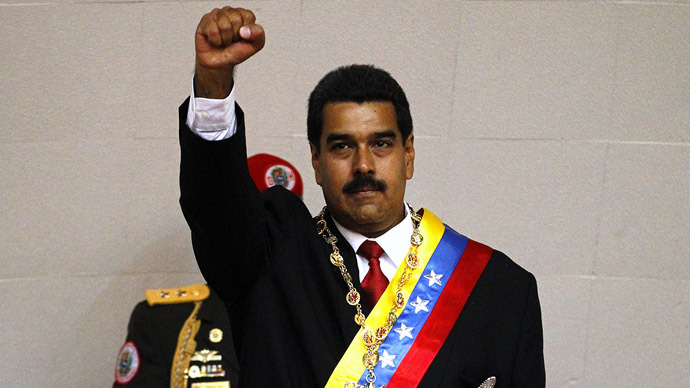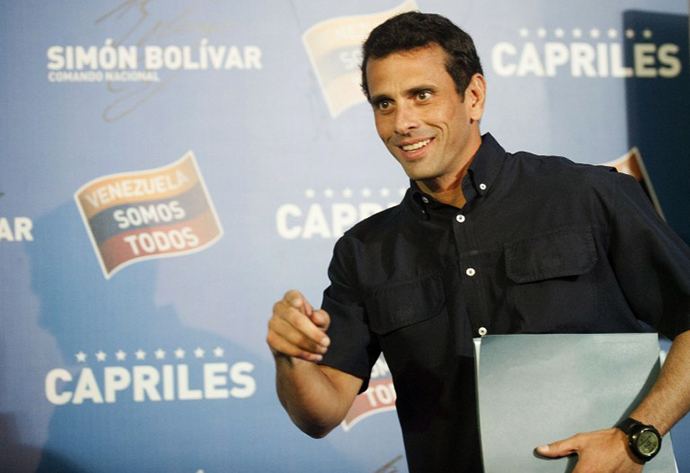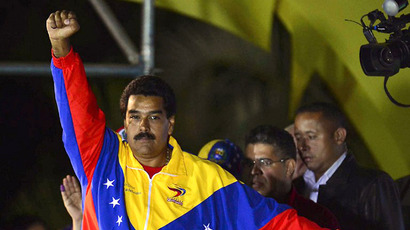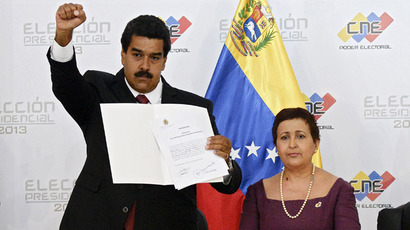Venezuela’s Maduro sworn into office as vote recount looms

The inauguration of new Venezuela President Nicolas Maduro has gone ahead, even as the opposition continues to challenge his poll victory, and a vote audit is still being conducted.
Thousands of Maduro’s socialist supporters gathered on the
streets of capital Caracas on Friday morning to mark the
occasion.
The ceremony is attended by the majority of South America’s heads
of state, and senior officials from Russia and China, which have
already recognized Maduro’s victory.
Meanwhile, opposition candidate Henrique Capriles called off a
rally of his backers, to avoid escalating an increasingly fraught
stand-off, and asked them to play salsa music as a symbol of their
protest against a result they believe was won
fraudulently.
Maduro, the former second-in-command to Hugo Chavez, who died of
cancer last month, won 50.8 percent of the vote on Sunday – beating
Capriles by a mere 267,000 votes out of 14.9 million.
Center-right coalition candidate Capriles claims that 3,000
violations took place – such as the inclusion of 600,000 dead
voters on the electoral roll, expulsion of opposition observers
from polling stations, and inexplicable swings in favor of Maduro
in certain districts compared to the results of last October’s
election, won by his significantly more popular predecessor
Chavez.

Venezuela’s electoral commission agreed to an audit on Thursday,
the same day that a court rejected a plea to postpone the
inauguration until it is complete. The commission will examine 46
percent of the ballots (54 were studied by default in the immediate
aftermath of the vote). The ballot assessment - which the
commission refuses to label as a recount - is likely to take around
a month.
The concession to the opposition was cautiously welcomed by
Capriles, and appears to have lowered the temperature of the
confrontation that has divided Venezuela.
The aftermath of the tightly-contested vote was marred by violent
clashes, with Maduro accusing the opposition of trying to stage a
US-backed coup, and Capriles claiming that opposition activists are
being subjected to repressive measures. At least eight people have
been reported to have been killed in the violence.
On Thursday, Maduro travelled to Peru for an emergency discussion
on ways out of the political crisis with other South American
leaders.
All of them have already recognized Maduro’s victory.
The 50 year-old Maduro was a bus driver and later a union leader,
before rising to the post of foreign minister during the Chavez
regime. He has positioned himself as a radical left-wing heir to
Chavez, who Maduro says was given cancer by the United States, and
routinely refers to opposition politicians as fascists.















